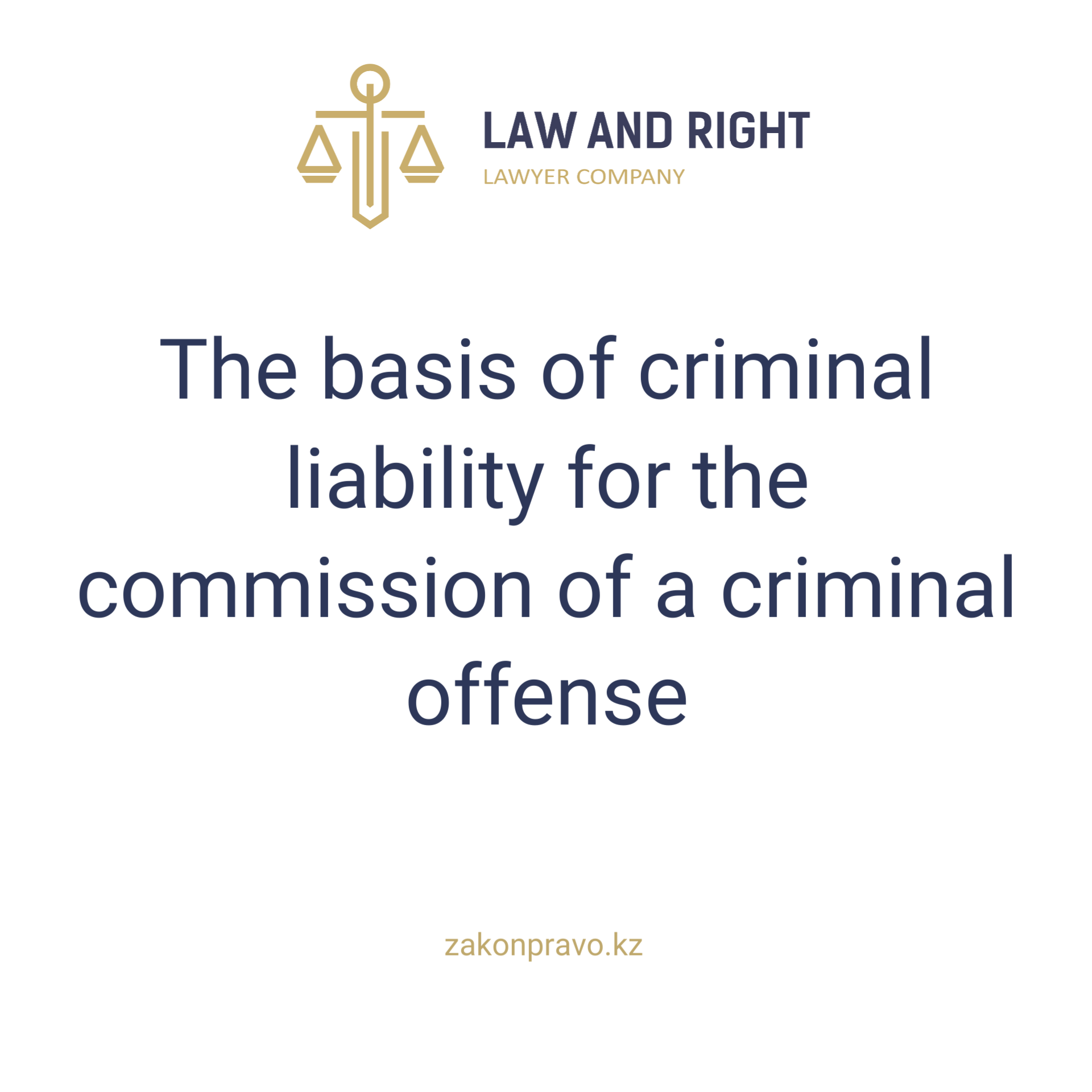The basis of criminal liability for the commission of a criminal offense
The only basis for criminal liability is the commission of a criminal offense, that is, an act containing all the signs of a crime or a criminal offense provided for by this Code. No one can be subjected to repeated criminal liability for the same criminal offense. The application of the criminal law by analogy is not allowed
Article 4 of the Criminal Code of the Republic of Kazakhstan defines the basic principles on which criminal liability is based. Here is a more detailed commentary on these provisions and their relationship to other legislative acts and regulations.
The main provisions of the article:
1. The only basis for criminal liability:
- Commission of a criminal offense: Criminal liability occurs only for an act that corresponds to all the signs of a crime or a criminal offense provided for by the Criminal Code of the Republic of Kazakhstan. This means that in order to bring a person to justice, his actions must fully comply with the requirements described in the Criminal Code.
2. Prohibition of repeated criminal liability:
- No one can be subjected to repeated criminal liability for the same criminal offense: This principle is known as "ne bis in idem" (lat. "not twice for the same thing"). It prohibits bringing a person to criminal responsibility again for an act for which he has already been convicted or acquitted. This ensures legal stability and protection of citizens' rights.
3. Prohibition of the application of criminal law by analogy:
- The application of the criminal law by analogy is not allowed: This provision means that criminal legislation cannot be applied to acts that are not covered by specific articles of the Criminal Code of the Republic of Kazakhstan by analogy (i.e., expansion to cases not provided for by law). The law must be clear and predictable, and arbitrary expansion of its norms is not allowed.
Links to articles of other codes and laws:
1. The Constitution of the Republic of Kazakhstan:
- Article 77: Establishes that no one can be convicted twice for the same crime, which corresponds to the principle of ne bis in idem.
- Article 76: Enshrines the principle of legal certainty and stability, which also echoes the prohibition on the application of criminal law by analogy.
2. The Criminal Procedure Code of the Republic of Kazakhstan:
- Article 9: Establishes the principles of justice and the rights of the accused, including the inadmissibility of repeated prosecution for the same crime.
3. The Civil Code of the Republic of Kazakhstan:
- Article 1 of the Civil Code: Defines the principles of legal regulation of civil relations, including legal certainty and stability, which is also important for criminal law.
Regulatory decisions of the Supreme Court of the Republic of Kazakhstan:
1. Regulatory Resolution of the Supreme Court of the Republic of Kazakhstan dated June 25, 2015 No. 4 ON certain issues of criminal punishment.
- This resolution clarifies the application of the principle of ne bis in idem, establishing the procedure and conditions under which this principle can be applied, as well as the procedure for re-prosecution.
2. Regulatory Resolution of the Supreme Court of the Republic of Kazakhstan dated December 28, 2009 No. 7. On the application of the norms of criminal and criminal procedure legislation on the observance of personal freedom and inviolability of human dignity, countering torture, violence, and other cruel or degrading treatment and punishment
- Provides clarifications on the application of criminal law, including the principles of legal certainty and the prohibition on the expansion of criminal law through analogy.
Conclusion
These principles ensure legal stability and the protection of citizens' rights, ensuring that criminal law is applied fairly and consistently. They help to avoid arbitrary and unlawful application of criminal law and ensure the protection of human rights in criminal proceedings.
Lawyer Almaty Lawyer Legal service Legal advice Civil Criminal Administrative cases disputes Defense Arbitration Law Company Kazakhstan Law Firm Court cases


